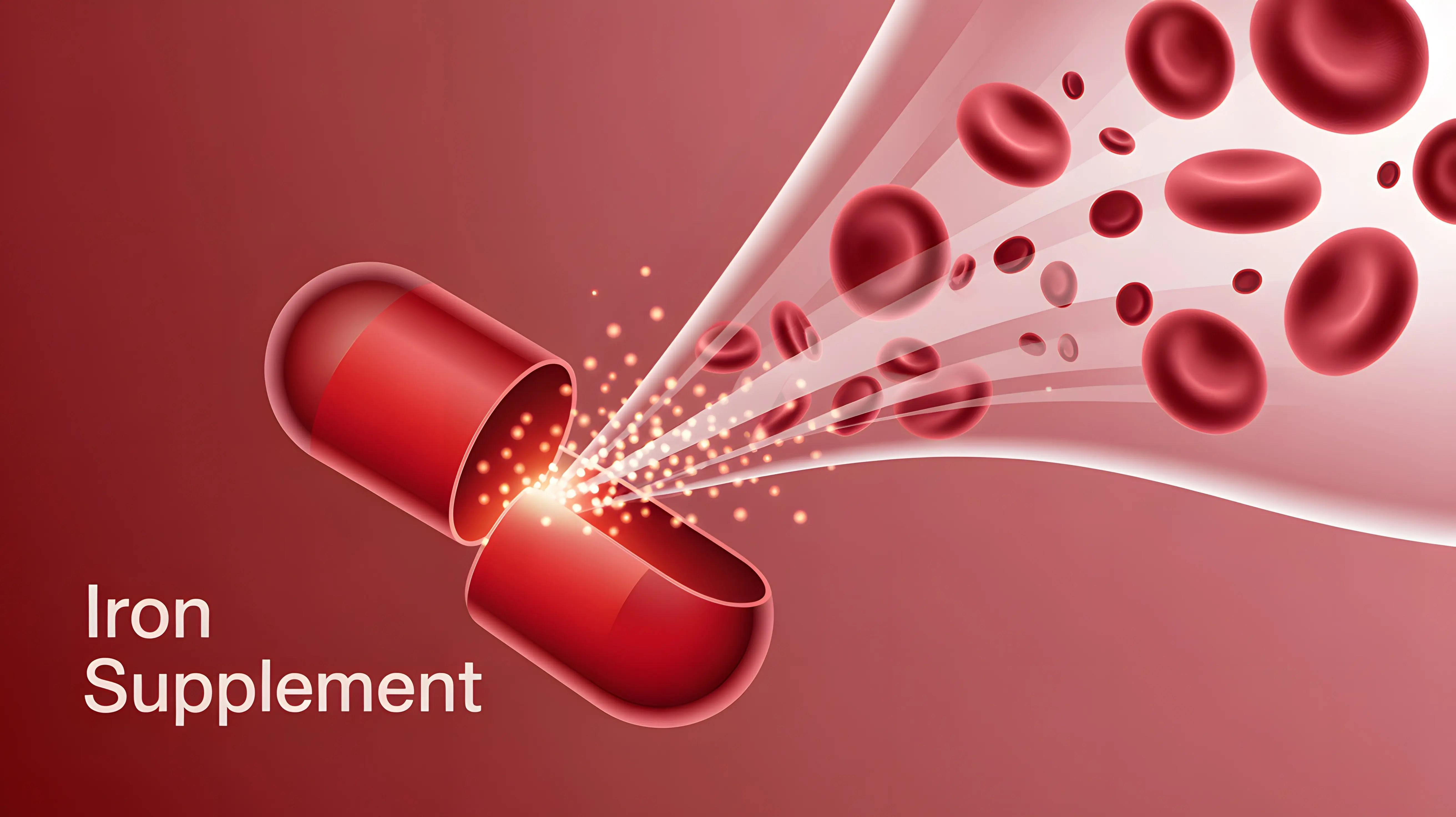Understanding Your Neutrophil Count: A Guide to Functions & Normal Levels
Curious about your neutrophil count? Learn what neutrophils are, their vital role in immunity, normal ranges by age, and what high or low levels could mean for your health.

Written by Dr. J T Hema Pratima
Reviewed by Dr. Rohinipriyanka Pondugula MBBS
Last updated on 13th Jan, 2026

Have you ever gotten a blood test report and wondered what all those numbers mean, especially next to terms like "neutrophils"? These tiny cells are the unsung heroes of your immune system, constantly patrolling your bloodstream and standing guard against infection. Your neutrophil count is a crucial piece of your health puzzle, offering doctors a window into how your body is fighting illness. This guide will demystify these powerful cells, explaining their functions, what a normal range looks like, and what it means if your levels are too high or too low. By the end, you'll be equipped to better understand your body's incredible defense network and know when to seek further advice.
What Are Neutrophils? The Body's First Responders
Neutrophils are the most abundant type of white blood cell, making up 50% to 70% of your total white blood cell count. They are produced in the bone marrow and are part of the innate immune system, which is your body's rapid, non-specific first line of defense. Think of them as the emergency medical technicians (EMTs) of your bloodstream—they are always on call, arrive at the scene of an infection first, and work quickly to contain the threat.
The Role of Neutrophils in Your Immune System
Their primary role is to seek out, engulf, and destroy harmful invaders, primarily bacteria and fungi. When a pathogen enters the body through a cut, the respiratory tract, or elsewhere, the body sends out chemical distress signals. Neutrophils are exceptionally sensitive to these signals and spring into immediate action. Their short lifespan (often just a few days) is a testament to their expendable, kamikaze-like nature—they are designed for a single, powerful mission.
How Neutrophils Work: The Battle Against Infection
The process neutrophils use to eliminate threats is a fascinating and brutal microscopic battle. It involves several highly coordinated steps.
Chemotaxis: Homing in on the Threat
The battle begins with chemotaxis. When tissues are damaged or infected, they release chemical signals called chemokines. Neutrophils detect these signals from a distance, much like a shark smelling blood in the water. They then change shape and crawl relentlessly through the walls of blood vessels and into the tissue, following the chemical gradient directly to the epicenter of the infection.
Phagocytosis: Engulfing the Invader
Once a neutrophil locates a bacterium, it doesn't hesitate. It extends its cell membrane around the microbe, completely swallowing it whole in a process called phagocytosis. The bacterium is then trapped inside a sac called a phagosome inside the neutrophil.
Degranulation and NETosis: Advanced Warfare Tactics
This is where the real destruction happens. The phagosome merges with granules inside the neutrophil that are filled with toxic enzymes and reactive oxygen species (like bleach). These chemicals rapidly digest and kill the captured pathogen, a process known as degranulation. In more extreme cases, neutrophils can perform a suicidal act called NETosis (Neutrophil Extracellular Traps). They unravel their own DNA and project it like a web, trapping and killing multiple pathogens outside the cell at once, ultimately sacrificing themselves in the process.
Consult a Specialist for Personalised Advice
What is a Normal Neutrophil Count?
Your neutrophil count is typically reported as part of a Complete Blood Count (CBC) test, a common blood panel. It's vital to interpret this number correctly to understand your immune status.
How a Neutrophil Count is Measured (Absolute vs. Percentage
You might see two values:
- Neutrophil Percentage (%): The proportion of all white blood cells that are neutrophils.
- Absolute Neutrophil Count (ANC): The actual number of neutrophils in a microliter of blood. This is the more important and precise number for clinical diagnosis.
The ANC is calculated as: ANC = WBC count × (% Neutrophils + % Bands) × 10
(Bands are immature neutrophils, indicating your bone marrow is ramping up production).
Neutrophil Normal Range Chart by Age
Normal ranges can vary slightly between labs, but a general guideline is:
Note: Always refer to your specific lab report's reference range.
What Does a High Neutrophil Count Mean? (Neutrophilia)
A high neutrophil count, known as neutrophilia, almost always indicates that your body is under stress and is ramping up its production of these first responders to deal with a perceived threat.
Common Causes of Elevated Neutrophils
- Bacterial Infections: This is the most common cause (e.g., appendicitis, tonsillitis, pneumonia).
- Inflammation: Conditions like rheumatoid arthritis or inflammatory bowel disease (IBD).
- Physical Stress: Intense exercise, surgery, or trauma.
- Emotional Stress: Sudden, severe emotional stress can trigger a release.
- Smoking: Chronic smoking is a common cause of mild neutrophilia.
- Certain Medications: Like corticosteroids.
- Bone Marrow Disorders: Such as chronic myeloid leukemia (CML).
Symptoms and Implications of Neutrophilia
You won't feel a high neutrophil count itself. Instead, you'll experience symptoms of the underlying condition causing it, such as fever, pain, swelling, or fatigue. The high count is a signpost, not the disease.
What Does a Low Neutrophil Count Mean? (Neutropenia)
A low neutrophil count, called neutropenia, means your body has a reduced ability to fight off bacterial and fungal infections. It's defined as an ANC below 1,500 mcL in adults, with severe neutropenia occurring below 500 mcL.
Common Causes of Low Neutrophil Levels
- Viral Infections: Influenza, hepatitis, HIV, and Epstein-Barr virus can temporarily suppress bone marrow production.
- Chemotherapy/Cancer Radiation: These treatments target rapidly dividing cells, which includes both cancer cells and bone marrow cells.
- Vitamin Deficiencies: Severe deficiencies in vitamin B12 or folate.
- Autoimmune Diseases: Lupus or rheumatoid arthritis can cause the body to attack its own neutrophils.
- Bone Marrow Disorders: Aplastic anemia, leukemia, or myelodysplastic syndromes.
- Medications: Some antibiotics, blood pressure drugs, or antidepressants.
Symptoms and Risks Associated with Neutropenia
The main risk is infection. Symptoms of neutropenia include frequent fevers, infections, mouth sores, and a sore throat. Even a minor infection can become serious quickly. If you are undergoing chemotherapy or have a known condition causing neutropenia and develop a fever, it is a medical emergency, and you should consult a doctor immediately. Apollo24|7 offers quick online consultations that can provide immediate guidance on next steps.
When to Be Concerned About Your Neutrophil Levels
Don't panic over a single slightly out-of-range number. Neutrophil counts fluctuate constantly. You should be concerned and follow up with a doctor if:
- Your ANC is persistently very high or very low across multiple tests.
- A low ANC is accompanied by recurrent fevers or infections.
- You have symptoms of an infection (fever, chills, sweating) and know you have a condition that causes neutropenia.
A doctor will interpret your neutrophil count in the context of your overall health, symptoms, and other blood test results. If your CBC report shows significantly abnormal levels and you are experiencing symptoms, consulting a hematologist or your primary care physician via Apollo24|7 can help you get a proper diagnosis.
How to Maintain a Healthy Immune System
While you can't directly control your neutrophil count, you can support your bone marrow and overall immune health:
- Balanced Diet: Ensure adequate intake of protein, zinc, selenium, and vitamins B12, C, and D.
- Good Hygiene: Regular handwashing prevents infections that stress the immune system.
- Manage Stress: Chronic stress can impair immune function.
- Adequate Sleep: Sleep is crucial for immune regulation and recovery.
- Follow Medical Advice: If you have a chronic condition affecting your count, adhere to your treatment plan.
Conclusion
Understanding your neutrophil count empowers you to be an active participant in your health. These mighty cells are a vital indicator of your immune system's activity, providing clues about everything from a simple bacterial infection to more complex inflammatory conditions. Remember, a single abnormal reading is not a diagnosis but a starting point for a conversation with your healthcare provider. By supporting your overall health through good nutrition and hygiene, you help ensure your neutrophil army is well-equipped for duty. If your blood work reveals consistent abnormalities, don't hesitate to seek professional medical advice to get a clear picture of your health.
Consult a Specialist for Personalised Advice
Consult a Specialist for Personalised Advice

Dr. Rajib Ghose
General Physician/ Internal Medicine Specialist
25 Years • MBBS
East Midnapore
VIVEKANANDA SEBA SADAN, East Midnapore

Dr. Debajyoti Goswami
Obstetrician and Gynaecologist
10 Years • MBBS,D.G.O(DNB),Adv. Infertility Tech.(AIIMS),Fellowship in Diabetes(U.K),Comprehensive Abortion Care(Govt. Of W.B), Certificate in Clinical Embryology(AIIMS, BHUBANESWAR)
Bankura
D.G Clinic, Bankura
(25+ Patients)

Dr. Anand Ravi
General Physician
2 Years • MBBS
Bengaluru
PRESTIGE SHANTHINIKETAN - SOCIETY CLINIC, Bengaluru

Dr Syed Mateen Pasha
General Physician
2 Years • MBBS
Bengaluru
PRESTIGE SHANTHINIKETAN - SOCIETY CLINIC, Bengaluru
Dr. Rubina Fatima
General Practitioner
1 Years • MBBS MD (Forensic Medicine)
Hyderabad
Dr Rubina Fatima Clinic, Hyderabad
Consult a Specialist for Personalised Advice

Dr. Rajib Ghose
General Physician/ Internal Medicine Specialist
25 Years • MBBS
East Midnapore
VIVEKANANDA SEBA SADAN, East Midnapore

Dr. Debajyoti Goswami
Obstetrician and Gynaecologist
10 Years • MBBS,D.G.O(DNB),Adv. Infertility Tech.(AIIMS),Fellowship in Diabetes(U.K),Comprehensive Abortion Care(Govt. Of W.B), Certificate in Clinical Embryology(AIIMS, BHUBANESWAR)
Bankura
D.G Clinic, Bankura
(25+ Patients)

Dr. Anand Ravi
General Physician
2 Years • MBBS
Bengaluru
PRESTIGE SHANTHINIKETAN - SOCIETY CLINIC, Bengaluru

Dr Syed Mateen Pasha
General Physician
2 Years • MBBS
Bengaluru
PRESTIGE SHANTHINIKETAN - SOCIETY CLINIC, Bengaluru
Dr. Rubina Fatima
General Practitioner
1 Years • MBBS MD (Forensic Medicine)
Hyderabad
Dr Rubina Fatima Clinic, Hyderabad
More articles from General Medical Consultation
Frequently Asked Questions
What is a dangerously low neutrophil count?
An ANC below 500 cells/mcL is considered severe neutropenia and significantly increases the risk of life-threatening infections. This requires immediate medical attention, especially if accompanied by a fever.
Can dehydration cause high neutrophils?
Yes, severe dehydration can cause hemoconcentration, making it appear like you have a high neutrophil count because the proportion of cells to fluid in the blood increases. This is why it's important to be well-hydrated before a blood test.
How can I raise my neutrophil count naturally?
If your neutropenia is due to a nutritional deficiency (e.g., B12 or folate), correcting that deficiency with diet or supplements can help. Otherwise, focus on supporting your immune system with a balanced diet rich in protein, zinc, and vitamins. Always consult a doctor before taking supplements, as the underlying cause must be treated.
What infections cause high neutrophils?
Bacterial infections are the most common cause of a high neutrophil count. This includes infections like pneumonia, urinary tract infections (UTIs), skin abscesses, and appendicitis.
Is 80% neutrophils high?
It depends on the context. Since neutrophils normally make up 50-70% of white blood cells, 80% is elevated and suggests neutrophilia. However, the absolute count (ANC) is more important. A person with a normal total WBC could have 80% neutrophils and a normal ANC, while someone with a high WBC and 80% neutrophils would have a very high ANC. Your doctor will interpret this value.




